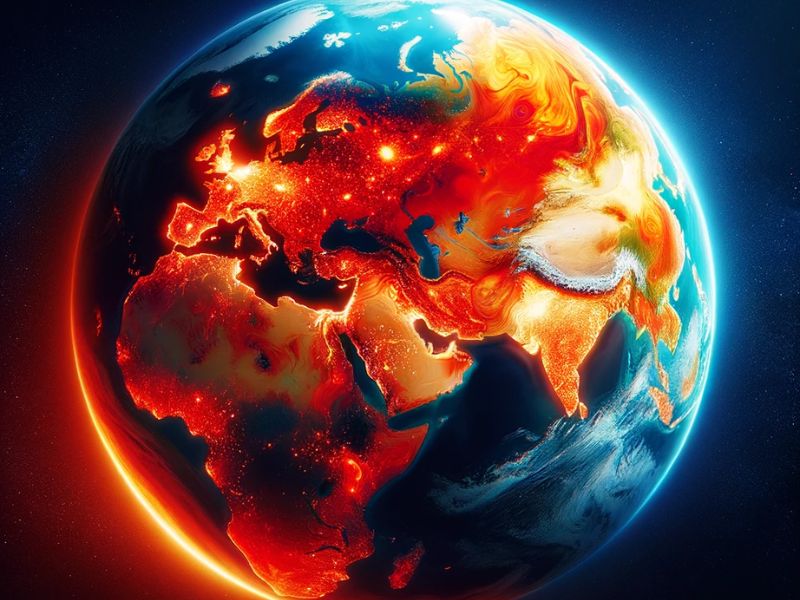
2023 was the hottest year in history
The hottest year on record underscores the urgency of addressing climate change and its implications for future emergencies
An Unprecedented Year: Analyzing the 2023 Heat Record
2023 has distinctly emerged as the hottest year in recorded history, a reality that has severely tested ecosystems and societies worldwide. According to climate experts, Europe and South America experienced unprecedented heatwaves, with temperatures exceeding 40°C in some regions. These extreme weather conditions were exacerbated by the El Niño climate phenomenon, contributing to an overall increase in global temperatures. Scientists predict that the impact of El Niño will continue into 2024, leading to further temperature rises. The temperatures in 2023 surpassed the previous record set in 2016, which was also a year influenced by El Niño, coupled with climate change. The scale and frequency of these extreme events underscore the growing instability of our climate system and the urgent need for concrete actions to address the climate crisis.
Health and Environmental Impacts: Consequences of a Record Heat Year
High temperatures, especially during the night, have had a significant impact on human health globally. In some parts of the world, nighttime temperatures did not drop below critical thresholds, preventing the human body from recovering from daytime heat and adversely affecting sleep quality. This condition has led to an increase in heat-related deaths, with thousands of casualties in Europe and the United States. Analysis of sleep trends has revealed that, starting from 2017, warmer nights contributed to an average reduction of about 44 hours of sleep per person per year. With the extreme temperatures of 2023, it is expected that this sleep loss has further increased, with negative consequences for people’s mental and physical health. Moreover, extreme heat can lead to heat strokes, cardiovascular and respiratory illnesses, and fatalities. These data emphasize the need to raise awareness about heat-related risks and the importance of implementing mitigation measures such as cooling centers and urban green spaces to counteract these effects.
Implications for Future Emergencies: Preparing for a Warmer World
The extreme climate events of 2023, such as heatwaves, droughts, and wildfires, have highlighted the importance of preparing for future emergencies related to climate change. The proactive management of such phenomena will require coordinated efforts on a global scale. Forecasting and prevention of crises, along with the implementation of early warning systems, will become essential tools to safeguard human lives and minimize economic losses. These events underscore the need to strengthen infrastructure and emergency services, enhancing the capacity of communities to respond to and recover from natural disasters and extreme weather events. Climate change is no longer a distant prospect but an immediate reality that demands decisive action and sustained commitment to reduce impacts and adapt to new environmental conditions.
Towards a More Resilient Future: Mitigation and Adaptation Strategies
The 2023 heat record serves as a clear warning to accelerate action against climate change. Addressing this global challenge will require the collaboration of governments, businesses, and communities to implement effective mitigation and adaptation strategies. Investment in sustainable technologies and the promotion of eco-friendly practices are fundamental steps towards building a more sustainable future. The transition to renewable energy sources, reducing carbon footprints, and adopting sustainable consumption models become imperatives. Furthermore, education and awareness about climate change must be intensified to ensure that everyone is informed and engaged in the fight against this crisis. Addressing climate change is not only a matter of environmental protection but also a commitment to protect vulnerable communities from its impacts and build a future in which thriving is possible despite environmental challenges.
Sources



